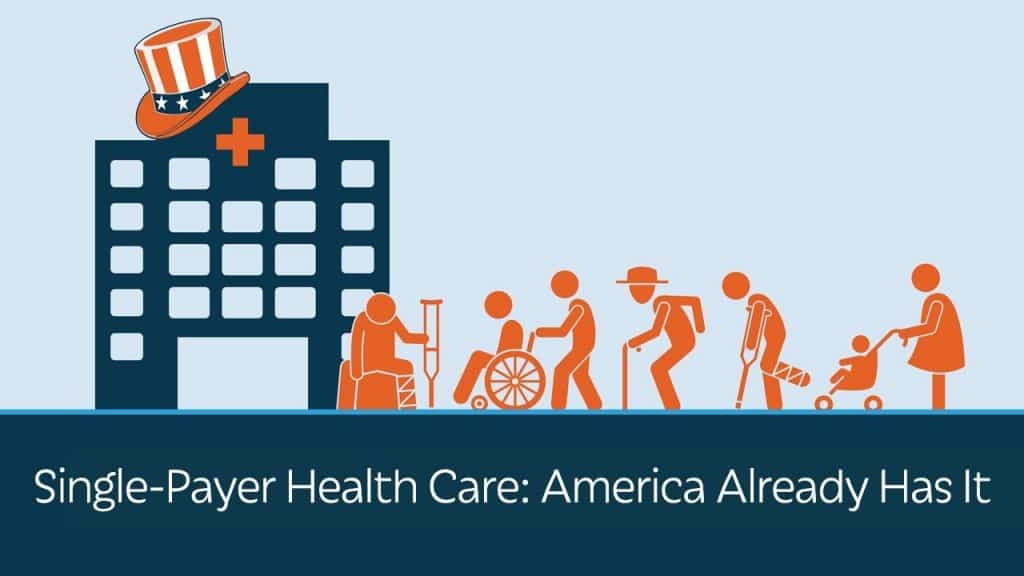A single-payer system is a health care system in which one entity – a single payer – collects all health care fees and pays for all health care costs. As Wikipedia says single payer health care is a healthcare system financed by taxes that cover the costs of essential healthcare for all residents, with costs covered by a single public system.
What is Single Payer Health Care?
Single Payer Health Care, also known as “Medicare for all,” a system wherein a single public or quasi-public organization organizes fitness care financing, but the delivery of care remains largely in personal arms. below an unmarried-payer system, all residents of the U.S. would be included for all medically important. Also, Read Best Mesothelioma Lawyer – Find the Top Law Firm
Healthcare for all! Absolutely – just get a remedy for what’s wrong until it’s made proper, no confusion, the entirety and everyone is considered same in the eyes of the single-payer machine. you may think of it also as typical healthcare.
so theoretically, anybody in the USA might be able to see a medical doctor, go to a hospital, have preventative as well as lengthy-term care sorted, be handled for dental, imaginative and prescient, intellectual health and reproductive issues – also all Americans would have to get right of entry to prescription medicinal drugs as well as clinical components (crutches, wheelchairs, oxygen machines, and different such scientific devices). think of single-payer, or typical healthcare, as being a proper that everyone has – no longer a privilege.
With that in thoughts, what many who guide an unmarried-payer system say is that coverage might be capable of being supplied at a fraction of the value whilst retaining similar medical results. saving money is a good component. additionally, proponents of the unmarried-payer gadget say that people would no longer lose insurance while a change in their paintings or economic state of affairs takes place – say via a task loss or if their earnings diminish in a few another manner.
The single payer health care program theoretically would maintain the modern manner offerings are delivered – thru unbiased medical doctors, hospitals and different scientific carriers.
proponents say that in contrast to socialized medication — a device wherein the authorities own the clinical
facilities and employs the healthcare carriers — the single-payer health care keeps healthcare transport as we are aware of it nowadays – but without the added stress and monetary burden of a patient identifying how to pay for it.
Again, they factor to medicare for instance of the single-payer healthcare shipping system. (despite the fact that, remember the fact that Medicare covers best eighty percent of the overall price of a health center visit and physician prices – if you decide in for both elements a and b, and does not cover dental or imaginative and prescient care nor does it cowl prescription medications.)
Single Payer Health Care vs Universal Health Care
Universal Health Care: This is a more general term. A single payer system is considered universal health care. A popular alternative is a Compulsory Insurance, the requirement that everyone carries health insurance, which is often combined with assistance for poorer citizens. An example of Compulsory Insurance is the US Affordable Care Act or “Obamacare”.
Single Payer Health Care: A government organization writes the check for every covered medical service. Examples: Canada’s system, Medicare in the US if you are 65 or over.
So right away we have the problem that we are comparing one thing that is a sub-category of the other thing. This is like trying to compare colors to blue. Therefore, let’s rephrase the question to compare Single Payer System with Compulsory Insurance.
Single Payer Health Care System is more efficient, has greater power negotiating payments, will be accepted by more health care providers (than private insurance), and is much, much simpler to implement. Compulsory Insurance allows greater flexibility in plan options (subject to legislation, of course), encourages competition, and retains jobs in the insurance industry.








